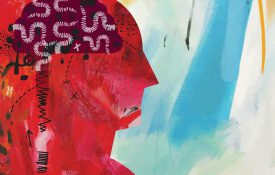-

New Research From Psychological Science
A sampling of research about the effects of information timing on risky choices and on visual word representation in reading. Visit Page
-

SSCP Award
Are you a member of the Society for a Science of Clinical Psychology (SSCP)? If so, you are eligible to apply for the annual SSCP student poster session at the APS Annual Convention. Cash awards Visit Page
-

Feeling Like “Part of the Family” Could Lead Employees to Take Advantage
Using communal “we” language in organizational codes of conduct can contribute to the perception that dishonesty will go unpunished. Visit Page
-

NIH Request for Information on Data Management and Sharing
Share comments and ideas to help guide NIH policies for the responsible use of data Visit Page
-
Can Babies Learn to Love Vegetables?
In a laboratory in Denver, on a decommissioned U.S. Army base, a baby sits in a high chair with two electrodes attached to his chest. To his left, on a small table, a muffin tin holds four numbered cups, each filled with a green substance. On the walls and the ceiling, four cameras and an omnidirectional microphone record the baby’s every burble and squawk, then transmit them to a secure server in an adjacent room. What looks like a window with blinds, across the room from the baby, is in fact a two-way mirror with a researcher behind it, scribbling notes. The baby’s mother takes a spoonful of the first sample and lifts it to the baby’s mouth, and the experiment begins. ...
-
A face-scanning algorithm increasingly decides whether you deserve the job
An artificial intelligence hiring system has become a powerful gatekeeper for some of America’s most prominent employers, reshaping how companies assess their workforce — and how prospective employees prove their worth. ... But Lisa Feldman Barrett, a neuroscientist who studies emotion, said she is “strongly skeptical” that the system can really comprehend what it’s looking at. She recently led a team of four senior scientists, including an expert in “computer vision” systems, in assessing more than 1,000 published research papers studying whether the human face shows universal expressions of emotion and how well algorithms can understand them.

